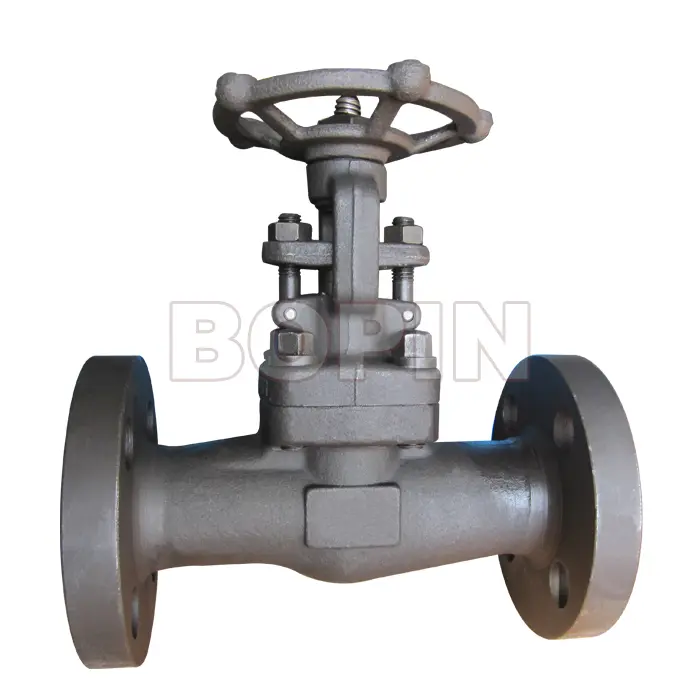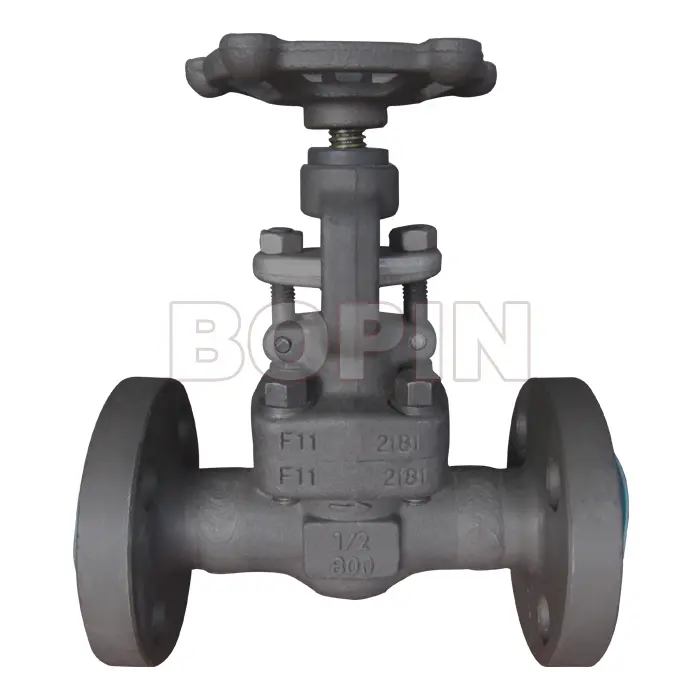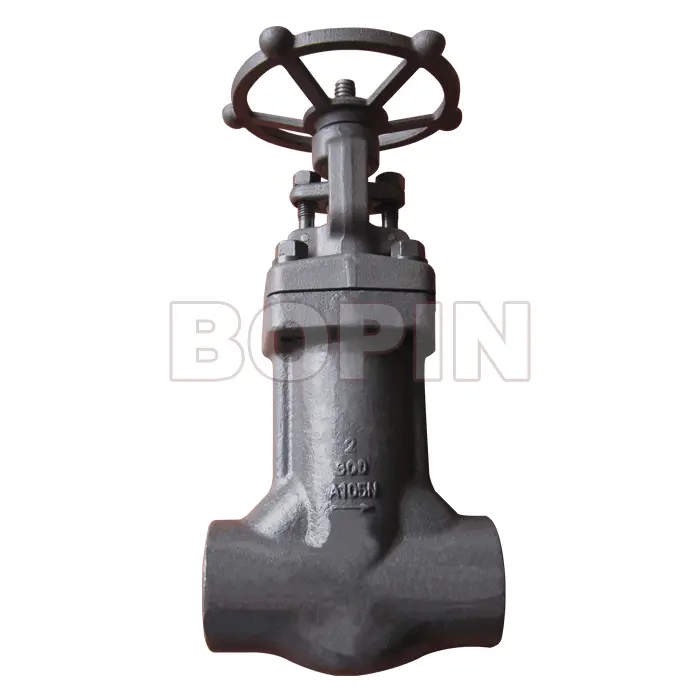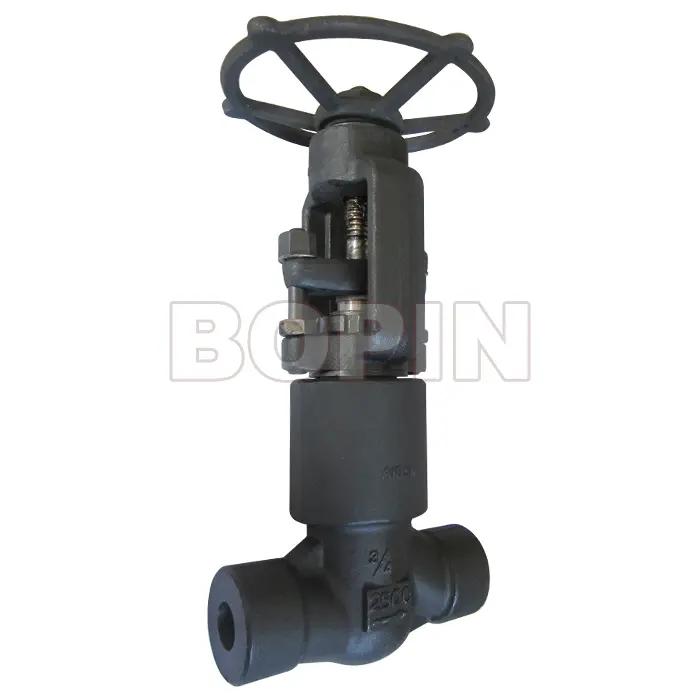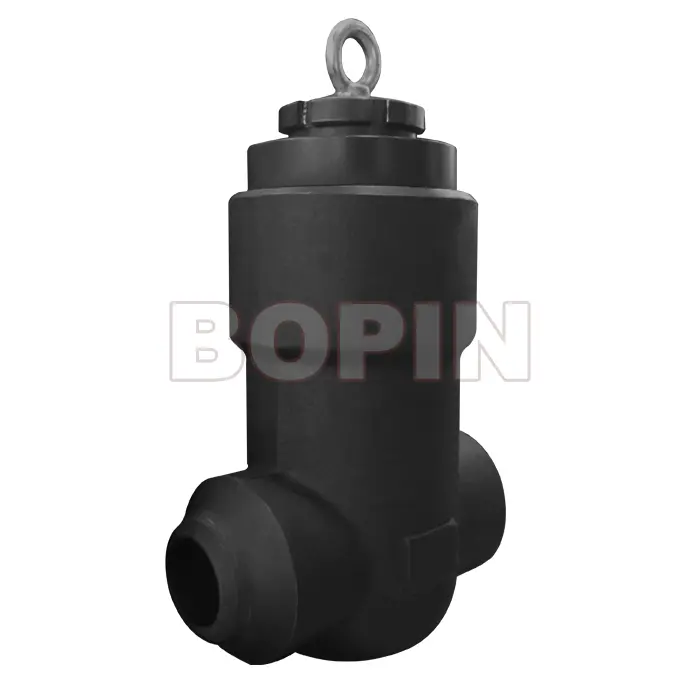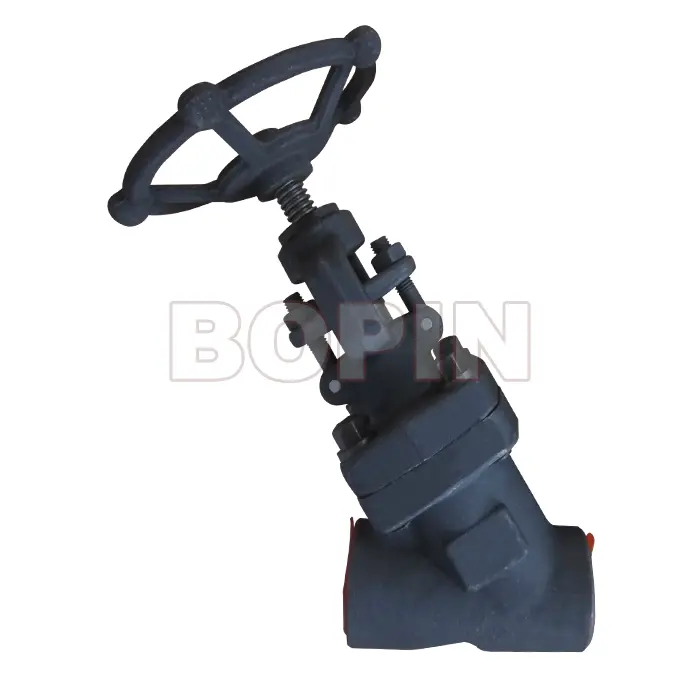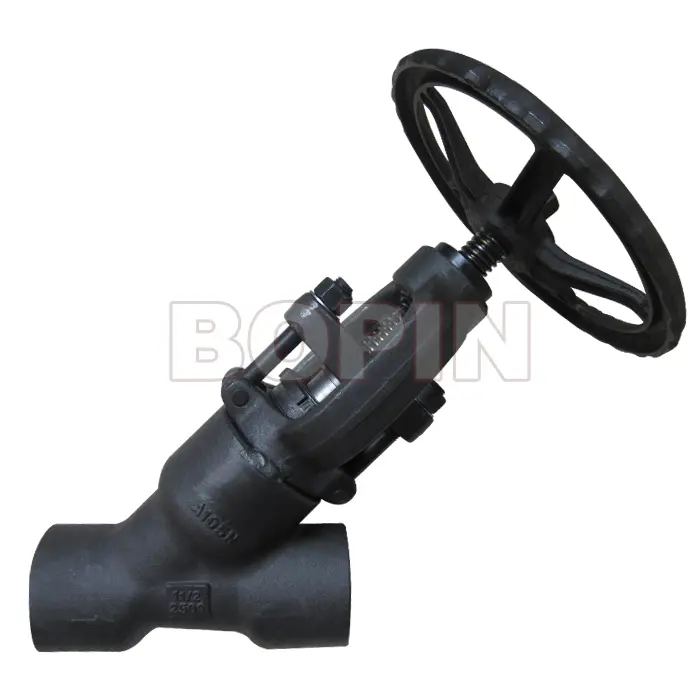0102030405
Forged Steel Valves
Manufacturing Process of Forged Steel Valves
The production of forged steel valves involves several stages, beginning with the selection of raw materials. The process typically includes the following steps:
Material Selection: The type of steel is chosen based on the desired characteristics of the finished valve. For example, carbon steels are commonly used for applications involving lower temperatures and pressures, while alloy steels and stainless steels are used for more demanding environments.
Heating and Forging: The selected steel is heated to a high temperature, typically above its recrystallization point, which allows the metal to be deformed more easily. This is followed by the forging process, where the hot steel is shaped using a hydraulic press or hammer. The goal is to create a near-final shape for the valve body, ensuring uniformity and consistency in the material.
Machining and Finishing: After forging, the valve body undergoes machining to refine its shape and achieve the required tolerances. This step involves removing excess material, drilling holes for valve stems or ports, and creating threads or other features as needed. The final finish is applied to the valve body to improve its surface appearance and resistance to corrosion.
Heat Treatment: To further enhance the material properties, the forged valve may undergo heat treatment processes such as annealing, quenching, or tempering. These processes modify the microstructure of the steel, improving its hardness, strength, and ductility.
Testing and Quality Control: Before the valves are shipped out, they undergo a series of tests to ensure they meet industry standards and customer specifications. This may include pressure testing, visual inspections, and non-destructive testing methods such as ultrasonic or X-ray inspections.
Types of Forged Steel Valves
Forged steel valves come in a wide range of designs, each suited to specific applications. Some of the most common types of forged steel valves include:
Gate Valves: Gate valves are used to start or stop the flow of a fluid or gas. They operate by raising or lowering a gate or wedge-shaped disk to open or close the valve. Forged steel gate valves are often used in applications that require tight shut-off and high-pressure capabilities.
Globe Valves: Globe valves are used for regulating the flow of fluids. They have a spherical body with a movable plug or disc that adjusts to control the flow rate. Forged steel globe valves are used in systems where precise flow control is needed.
Ball Valves: Ball valves use a rotating ball with a hole through the center to control the flow of fluids. When the ball is aligned with the pipeline, the valve is open; when rotated 90 degrees, it closes the flow. Forged steel ball valves are known for their durability and reliability in high-pressure and high-temperature applications.
Check Valves: Check valves allow flow in one direction only, preventing backflow in a system. They can be spring-loaded or use gravity to operate. Forged steel check valves are commonly used in pipelines where preventing backflow is critical.
Globe Valves: These valves are specifically designed to regulate flow in a pipeline. They are often used where precise throttling of the fluid is necessary. Forged steel globe valves are preferred in industries where control of the flow rate is vital.
Advantages of Forged Steel Valves
Forged steel valves offer several significant advantages compared to their cast counterparts, including:
Strength and Durability: Forged steel valves are stronger and more durable than cast steel valves. The forging process aligns the grain structure of the steel, improving its overall toughness and resistance to cracking or failure under stress. This makes forged steel valves ideal for high-pressure and high-temperature applications.
Improved Corrosion Resistance: Depending on the alloying elements used, forged steel valves, especially those made from stainless steel or other corrosion-resistant alloys, offer excellent resistance to corrosive environments. This makes them suitable for use in industries such as oil and gas, chemical processing, and water treatment.
Enhanced Performance in Extreme Conditions: Forged steel valves can withstand extreme temperatures and pressures better than cast valves. This is crucial in industries such as power generation, oil and gas, and chemical manufacturing, where systems operate under challenging conditions.
Longer Service Life: Due to their superior strength and resistance to wear and tear, forged steel valves tend to have a longer service life compared to cast steel or other types of valves. This results in fewer maintenance requirements and lower overall operational costs.
Reliability: The forging process reduces the risk of defects such as porosity and voids that can weaken the valve. As a result, forged steel valves are less likely to fail, providing a higher level of reliability in critical applications.
Applications of Forged Steel Valves
Forged steel valves are used in a wide variety of industries and applications where reliability, strength, and resistance to extreme conditions are crucial. Some of the most common applications include:
Oil and Gas Industry: Forged steel valves are widely used in the oil and gas sector for controlling the flow of crude oil, natural gas, and other fluids. These valves are used in upstream exploration and production, as well as downstream refining and distribution.
Power Generation: In power plants, forged steel valves are used in steam, gas, and water systems to regulate flow and pressure. These valves must perform reliably in high-pressure, high-temperature environments.
Chemical Processing: Forged steel valves are used to control the flow of chemicals, acids, and other corrosive substances in chemical processing plants. Stainless steel and alloy steels are often selected for their corrosion resistance.
Water and Wastewater Treatment: Water treatment plants use forged steel valves to regulate the flow of water through various filtration and treatment processes. These valves must be resistant to corrosion from exposure to water and various chemicals.
Marine and Aerospace: Forged steel valves are also used in the marine and aerospace industries, where they must meet stringent performance requirements for high-pressure and high-temperature applications.


















